top of page
Search
Film Reviews
Reviews of films from 1930's through to 1999.


The Usual Suspects (1995)
Few crime thrillers have embedded themselves into the pop culture psyche quite like The Usual Suspects. Released in 1995, Bryan Singer’s moody, twist-laden neo-noir is remembered not just for its stylistic cool and clever dialogue but for delivering one of the most audacious and talked-about twist endings in modern cinematic history.

Soames Inscker
4 min read


The Silence of the Lambs (1991)
In the realm of psychological thrillers, few films have reached the chilling heights of The Silence of the Lambs. Released in 1991, Jonathan Demme’s masterwork is both a gripping procedural and a deeply unsettling journey into the darkest recesses of the human mind. With standout performances, razor-sharp direction, and a script that balances horror with intelligence, the film became an instant classic—and remains a defining entry in American cinema.

Soames Inscker
4 min read


The Shawshank Redemption (1994)
Few films in modern cinema have earned such enduring affection, critical reassessment, and mythic status as The Shawshank Redemption. Quietly released in 1994 to modest box office returns, it found new life through word of mouth, home video, and television airings—eventually ascending to a place many consider sacred in film history. Today, it's widely regarded as one of the greatest films ever made, and rightfully so.

Soames Inscker
3 min read

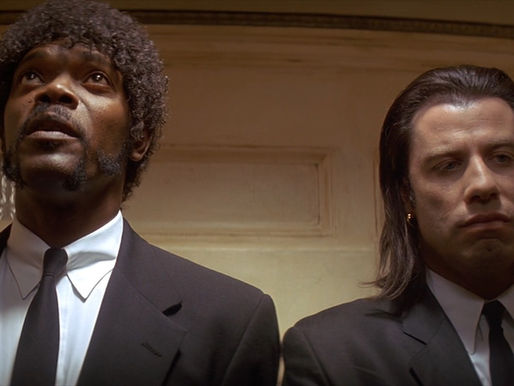
Pulp Fiction (1994)
Quentin Tarantino’s Pulp Fiction isn’t just a movie—it’s a cultural detonation. Released in 1994, it redefined independent cinema, catapulted its director to auteur status, revitalized the careers of fading stars, and reshaped what Hollywood dared to call mainstream. With its intertwining narratives, non-linear storytelling, and stylized blend of ultraviolence and deadpan humour, Pulp Fiction is a bravura piece of filmmaking that still feels dangerous, fresh, and hypnotically

Soames Inscker
3 min read


The End (1978)
The End is an odd, bold, and frequently funny film that tackles taboo topics with irreverence and surprising heart. Though uneven and occasionally too zany for its own good, it earns points for its originality and for showcasing a more vulnerable, daring side of Burt Reynolds. For fans of dark comedy and '70s cinema that refuses to play it safe, The End is a flawed but fascinating gem.

Soames Inscker
3 min read

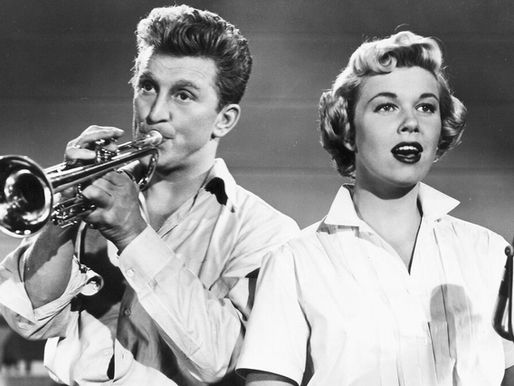
Young Man With A Horn (1950)
Directed by Michael Curtiz and loosely based on the life of jazz cornetist Bix Beiderbecke, Young Man with a Horn is a stylish and somber musical drama that explores the passion, pain, and personal demons of a gifted jazz musician. With a stellar cast led by Kirk Douglas, Lauren Bacall, and Doris Day, the film blends vibrant musical sequences with intense character study, set against the smoky, seductive world of 1940s jazz.

Soames Inscker
3 min read

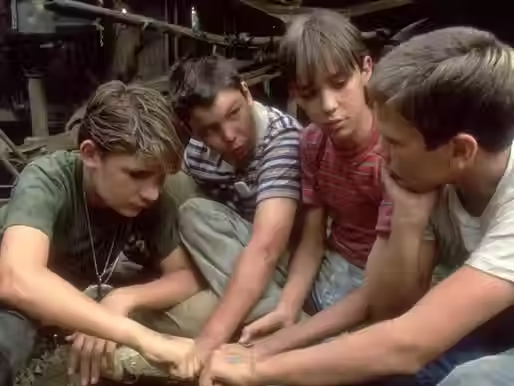
Stand By Me (1986)
Directed by Rob Reiner and based on Stephen King’s novella The Body, Stand by Me is a poignant, bittersweet coming-of-age film that transcends its simple premise to explore the complexity of friendship, loss, and the painful beauty of growing up. Set in the fictional town of Castle Rock, Oregon in the summer of 1959, the film follows four 12-year-old boys on a journey to find the body of a missing boy—an odyssey that becomes a profound rite of passage.

Soames Inscker
3 min read


Meet Me in St Louis (1944)
Directed by Vincente Minnelli and starring Judy Garland, Meet Me in St. Louis is a radiant Technicolor musical that blends nostalgia, romance, and family warmth into one of the most enduring and beloved films of Hollywood’s Golden Age. Set in the year leading up to the 1904 World’s Fair, this MGM classic is more than just a musical—it's a heartfelt portrait of American life at the turn of the century, suffused with charm and emotional depth.

Soames Inscker
3 min read


The Great Ziegfeld (1936)
Released by MGM in 1936 and directed by Robert Z. Leonard, The Great Ziegfeld is a sprawling, opulent biographical musical-drama chronicling the life and legacy of Broadway impresario Florenz Ziegfeld Jr. Starring William Powell in the titular role, alongside Myrna Loy as Billie Burke and Luise Rainer in an Oscar-winning performance as Anna Held, the film is a landmark in Golden Age Hollywood—both for its lavish production and for its place in cinematic history.

Soames Inscker
3 min read


Libeled Lady (1936)
Metro-Goldwyn-Mayer’s 1936 screwball comedy Libeled Lady is a shining example of the studio system at its most polished and effective, blending the star power of four Hollywood heavyweights with a witty, fast-paced script. Directed by reliable studio hand Jack Conway and boasting an impeccable cast led by Jean Harlow, William Powell, Myrna Loy, and Spencer Tracy, the film sparkles with charm, sophistication, and comedic precision.

Soames Inscker
3 min read

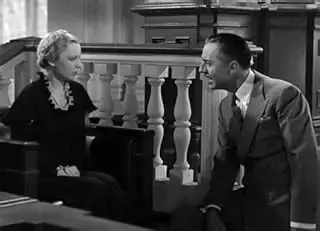
Evelyn Prentice (1934)
While William Powell and Myrna Loy are best remembered for their sparkling chemistry in comedies like The Thin Man series, Evelyn Prentice (1934) offers a fascinating early glimpse of the duo in a markedly different light.

Soames Inscker
3 min read


I Love You Again (1940)
Few on-screen pairings in classic Hollywood can rival the enduring charm and comedic synergy of William Powell and Myrna Loy. In I Love You Again (1940), their 9th collaboration, the duo once again delivers a delightful screwball comedy that deftly blends romance, mistaken identity, and con artistry into a briskly entertaining package.

Soames Inscker
3 min read


Love Crazy (1941)
Love Crazy (1941) is a sparkling example of screwball comedy, and a delightful testament to the enduring screen chemistry between William Powell and Myrna Loy. Best known for their iconic roles as Nick and Nora Charles in The Thin Man series, Powell and Loy teamed up for Love Crazy during a time when audiences needed levity more than ever—amidst the mounting tensions of World War II.

Soames Inscker
4 min read


The Man Who Shot Liberty Valance (1962)
The Man Who Shot Liberty Valance (1962) is not just one of John Ford’s greatest films—it is one of the most introspective and politically astute Westerns ever made. A masterful late-career work from the director who helped define the genre, the film reconsiders the mythology of the American frontier and asks hard questions about the cost of civilization, the nature of heroism, and the truth behind legend.

Soames Inscker
5 min read

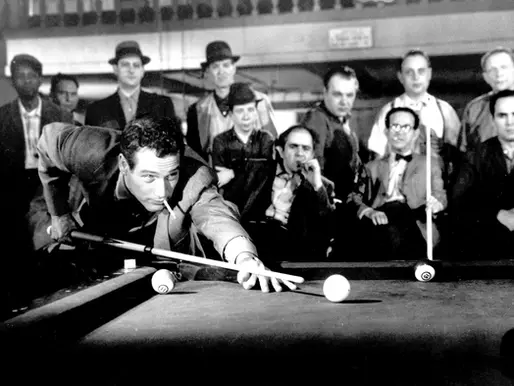
The Hustler (1961)
The Hustler (1961) is more than just a film about pool—it’s a powerful, haunting character study about pride, obsession, and the elusive nature of integrity.

Soames Inscker
4 min read


La Dolce Vita (1960)
Federico Fellini’s La Dolce Vita is one of the most iconic and influential films in the history of cinema. Released in 1960, it marked a profound departure from traditional narrative and moral storytelling, signaling the arrival of a new, modernist era in European film. A kaleidoscopic journey through seven days and nights in Rome’s decadent elite society, the film is not only a portrait of a changing Italy but also a timeless meditation on meaning, excess, and the pursuit of

Soames Inscker
4 min read


The Birds (1963)
The Birds (1963) is Alfred Hitchcock’s most enigmatic and unsettling film—an apocalyptic thriller cloaked in the skin of a psychological drama. Unlike his earlier masterworks such as Psycho or Rear Window, The Birds defies easy classification. It begins like a sophisticated romantic comedy, morphs into a slow-burn psychological mystery, and then erupts into one of cinema’s most unique horror spectacles: nature turned predator.

Soames Inscker
5 min read


Night of the Living Dead (1968)
Released in 1968, Night of the Living Dead is one of the most influential horror films in the history of cinema. Directed on a shoestring budget by George A. Romero, then a 28-year-old unknown from Pittsburgh, the film redefined the horror genre, birthed the modern zombie mythos, and introduced a shocking level of graphic violence and socio-political subtext to American screens.

Soames Inscker
4 min read


The Wild Bunch (1969)
The Wild Bunch is more than just a film—it is a revolution in Western cinema. Released in 1969, directed by the controversial and visionary Sam Peckinpah, it shattered the clean-cut mythos of the Old West with a brutal, elegiac, and unflinchingly violent portrayal of aging outlaws at the turn of the 20th century.

Soames Inscker
4 min read


Once Upon a Time in the West (1968)
Once Upon a Time in the West (C’era una volta il West) is not just a film—it is a cinematic cathedral built in the mythic landscape of the American West. Released in 1968, this masterpiece from Italian director Sergio Leone marked a turning point in the evolution of the Western genre.

Soames Inscker
4 min read
bottom of page


